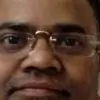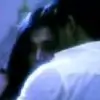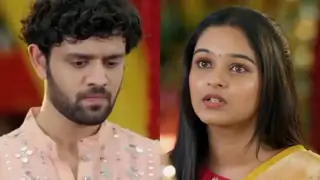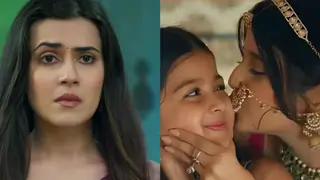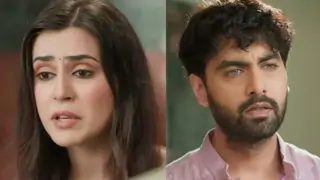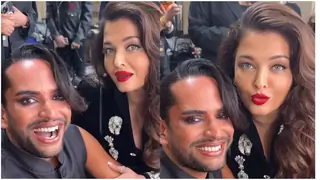Veteran lyricist Anand Bakshi passed away in Mumbai on March 30, 2002. He had been ailing for quite some time and was undergoing treatment for lung and heart related problems. Bakshi was perhaps the only lyricist apart from Majrooh Sultanpuri who enjoyed such a long and illustrious career and who was still going strong after more than 43 years since he broke through in Hindi films as a lyricist.
Born in Rawalpindi, Bakshi was an avid film buff and always dreamt of coming to Bombay to join the Film Industry. His early dream was to become a successful playback singer and not a lyricist. So passionate was Bakshi about joining the film industry that he ran away from home and joined the Navy with the hope of reaching Bombay. However the Naval Mutiny in Karachi ended his career in the Navy. After the partition of the Indian subcontinent into India and Pakistan in 1947, Bakshi returned to his family in Lucknow. A short stint as a telephone operator followed but he was still determined to move to Bombay.
But he could make no headway in Bombay. Dejected and disillusioned, Bakshi went back to Delhi and worked with the EME as a motor mechanic. But Bakshi persisted with his efforts to join the Film line and kept coming back to Bombay to try his luck. His persistence finally paid off when a chance meeting with actor Bhagwan materialized into an offer to write the lyrics for Bhagwan's film Bada Admi (1958). Followed more long periods of struggle till he began to get noticed with his work in the films of Suraj Prakash - Mehndi Lagi Mere Haath (1962) and Jab Jab Phool Khile (1965). The latter film particularly brought Bakshi to the fore with the song Pardesiyon se Na Ankhiyaan Milana proving to be most popular. It was Milan (1967) however that finally took Bakshi to the top. Songs like Sawan ka Mahina, Bol Gori Bol, Ram Kare Aisa Ho Jaye, Main to Diwaanaa and of course Hum Tum Yug Yug Geet Milan ke were hummed in every corner of the country. Anand Bakshi had arrived. And from then onwards he never looked back.
Followed a golden period for Bakshi whose association with Lakshmikant-Pyarelal and R.D. Burman led to such musical milestones like Farz (1967), Do Raaste (1969), Bobby (1973), Amar Akbar Anthony (1977), Ek Duje ke Liye (1981) with the former and Kati Patang (1970), Amar Prem (1971) and Hare Rama Hare Krishna (1971), just to name a few, with the latter. Of these his work in Amar Prem particularly stands out and was among his favourites. Shakti Samanta heard Bakshi recite Chingari Koi Bhadke at a 'kavi samelan' and incorporated it specially into the film. Other masterpieces in this film include Bada Natkhat Hai, Kuch to Log Kahenge, Yeh Kya Hua and Raina Beeti Jaaye. Mention must also be made of his association with filmmakersRaj Kapoor (Bobby, Satyam Shivam Sundaram (1978)), Shubash Ghai (Karz (1980), Hero (1983), Karma (1986), Ram Lakhan (1989), Saudagar (1991), Khalnayak (1993) to Taal (1999) and Yaadein (2001)) and Yash Chopra (Chandni (1989), Lamhe (1991), Darr (1993), Dil to Paagal Hai (1997)). Bakshi has also sung in the film Mom ki Gudiya (1972) - Baaghon Mein Bahaar Aayi with none other than Lata Mangeshkar. Recalls Lata
"I remember before the song was recorded he came up to me and said 'since I'm going to sing with you, the song is bound to be a success.'"
Bakshi's strength was that he wrote simple poetry which could be understood by one and all. He was also one of the few lyricists who made it a point to attend all the recordings of his lyrics. In fact according to him
"The lyrics of any song depend on the story, the theme and the situation for which it is created. A song can be written to match any mood, occasion or whatever age group the script demands. So whether it is a story of the sixties/seventies period or today, it doesn't really make a difference."
Among various honours bestowed upon him, Anand Bakshi won the Filmfare Award for Best Lyricist four times - Apnapan (1977) (Aadmi Musafir Hai), Ek Duje ke Liye (Tere Mere Beech Mein), Dilwale Dulhania Le Jaayenge (1995) (Tujhe Dekha to Yeh Jaana Sanam) and Taal (Ishq Bina). He is survived by his wife, two sons and two daughters.
http://www.upperstall.com/anandbakshi.html










